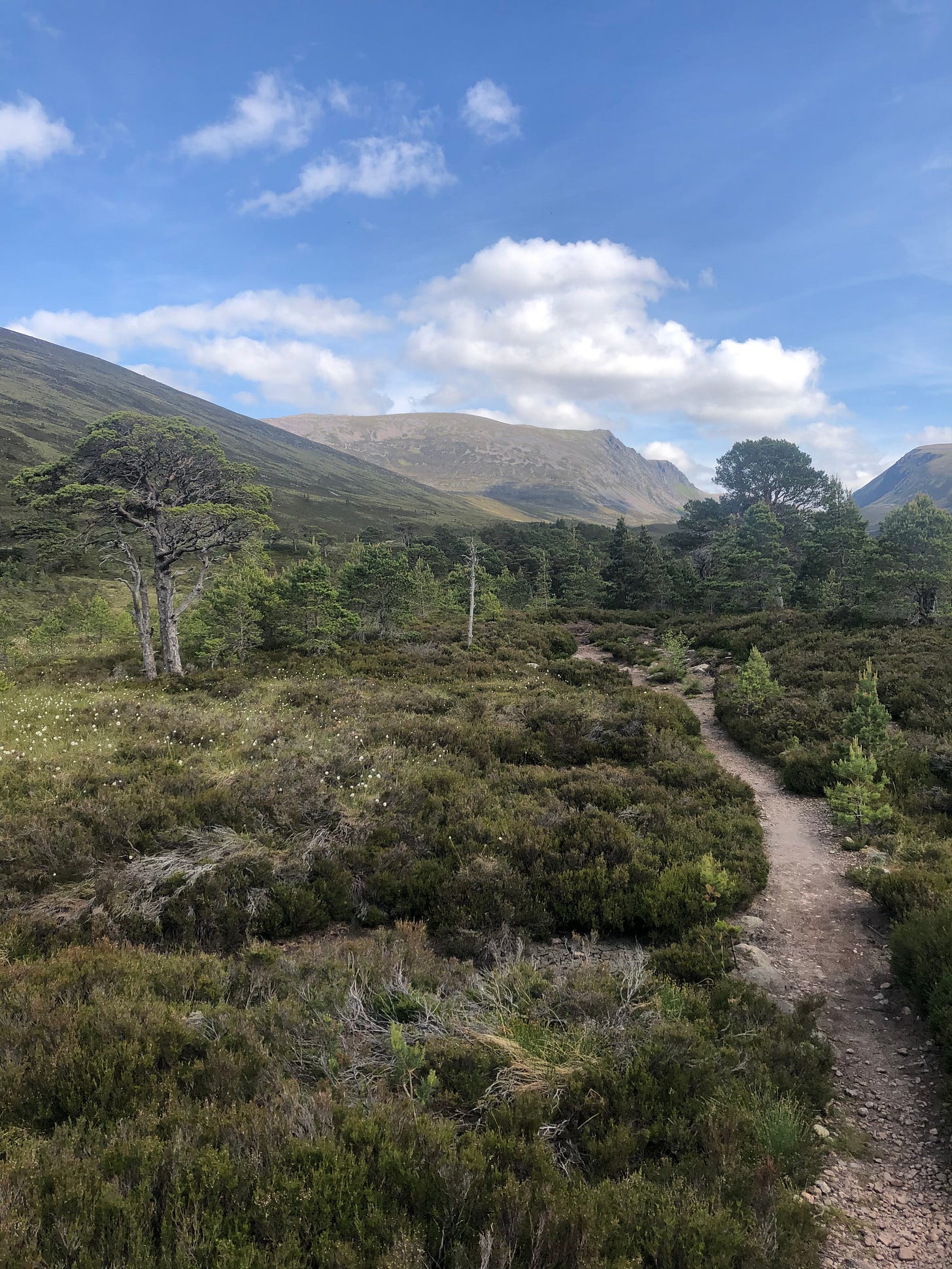“If you don’t hear from me after Saturday 4 PM, you’ll need to call a search party.” I’m sitting on the bus to Aviemore, the landscape is slowly changing into rougher, wilder edges. The bus is full of pensioners, heavily discussing how they should have booked the tickets online, as it would have saved them a lot of money. They’re all going up to Inverness for the weekend, the final destination, most of them are French.
It’s early June and the weather finally switched gear into summer. The last time I was on this bus, it was December and everything was covered in snow and white mist. Now I can see bright beige paths, curving all around the sage green hills next to us.
For four years I have been talking about this trip, this place: The Cairngorms. “If you don’t hear from me after Saturday 4 PM, you’ll need to call a search party.” I text my dad as a precaution, which feels quite dramatic, which is why I send it to my dad only. A person that I esteem to be rational …


